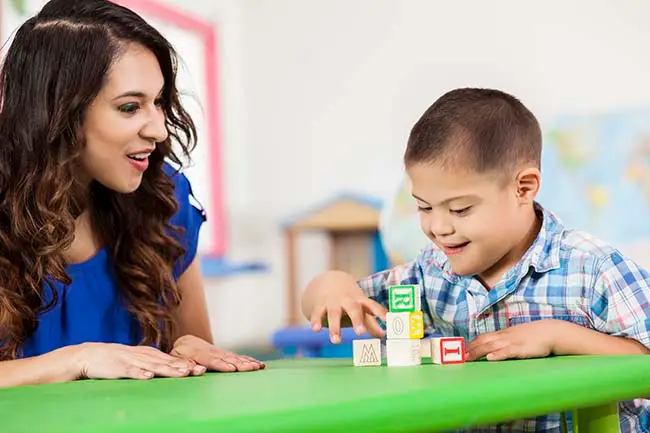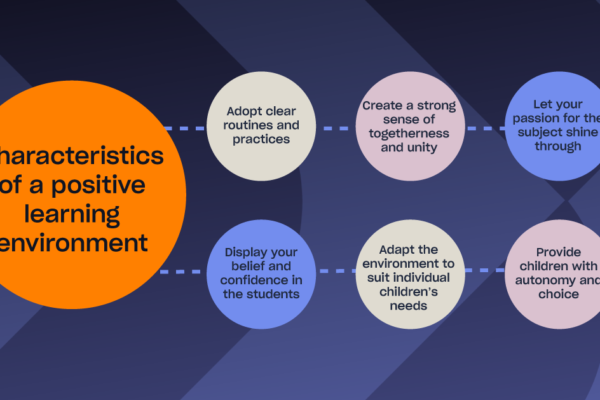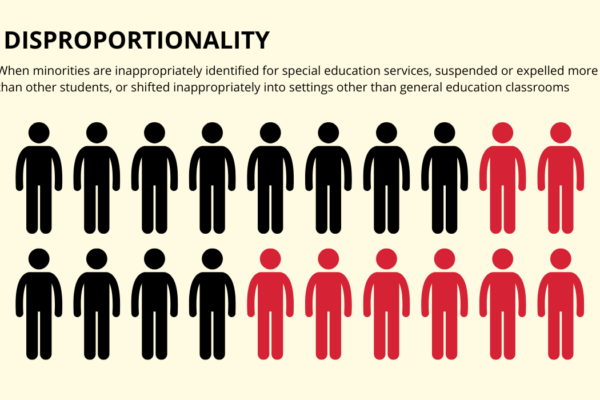Managing a mainstream classroom can be a challenge, but a special education class requires a greater commitment from the teacher.
In every classroom, there are students who have specific educational needs. A special education teacher needs to be able to adjust their lesson plans for every individual. Without the proper training and behavior management strategies, it’s easy for a student to fall behind or for the educator to lose control of the classroom.
For their class to succeed, they need to both routinely educate themselves at workshops as well as rely on their school’s resources. That could mean speaking to the school’s psychologist about some challenges they’re facing, as well as conferring with the principal about implementing some new strategies or privileges.

Here are some tips to get started on improving your classroom management.
Establish Meaningful Relationships
Building a relationship with your students helps you understand your students as well as helps them feel connected to you. The stronger the relationship, the more you can understand what’s going through their minds and make connections regarding their behaviors.
One great way to do this is by greeting students at the door. It allows you to check how they’re doing in the morning and address any feelings that might cause issues later on in the day.
Teachers should also check in with special needs students throughout the day to keep them on task and motivated.
If you’re a school counselor, special education director, school psychologist, or behavior interventionist, check out one of these free monthly managing student behavior series. These webinars teach how to deal with frustrated students, identifying behaviors, and more.
Post Classroom Rules and Reference Them
Especially for students with learning disabilities and behavioral challenges, seeing rules on the walls can help keep them stay focused.
The teacher should post these rules around the classroom where they’re easily seen. Review them on a regular basis so that they don’t fade into the background.
One way to remind students of the rules is to have them take turns reading them every day. You could also give them examples of situations and ask what an appropriate reaction would be. Teaching proper behaviors is as important as any of the other lessons on their curriculum.
Use Reminders to Keep Students on Task
Students can get off task fairly easily if left unchecked. For younger students, a soft chime sound or some other kind of fun noisemaker can get their attention.
For older students, give them time to follow instructions. During an assignment, remind anyone who has finished what they should be doing when they’re done. That way, they won’t distract the other students who are still working.
Make sure not to give mixed signals, though. If you allow one student to do something, then other students might ask for the same privileges. Work out a system of what they can and can’t do, and stick to it.
Schedule in Breaks
Students of all ages look for excuses to take a break from their schoolwork, whether it’s to go to the bathroom or get a drink of water. Special education classrooms are no different.
Scheduling in breaks can actually help special needs students focus better throughout the day.
Too much work can cause unnecessary stress and lead to an emotional outburst. It can also cause students to become unfocused and retain less information.
When implementing a break, teachers need to give some general guidelines. Set a timer for a certain amount of time, after which the student returns to their work. If given an individual break, direct the student to a predesignated break area.
Break time should be treated as a privilege and dealt with accordingly if a student refuses to go back to work or is disruptive.
Classroom Seating Options
Another method of classroom management is to provide plenty of seating options. When students are allowed to sit wherever they want, they’re three times more likely to become disruptive than when assigned seating.
However, giving students some level of freedom with certain expectations can reduce anxiety and boost academic performance. Let them sit on couches or rugs as long as they do their work. Invest in some special needs seating to create a more optimal work environment.
If a student can’t do their work, move them back to a desk until they do better.
Supervise the Lesson
It’s easy to think that a quiet classroom is an opportune time to do some paperwork and grade some assignments. However, it takes only a single student acting up for a domino effect to occur, and then everyone is off task.
Teachers should actively supervise the classroom. Don’t watch over them like a hawk, though. Move around, check-in on their progress, and be ready to answer whatever questions they have.
Be an active participant in their education, and they’ll thank you for it.
Consistency is Key
One of the most important behavior management strategies is consistency.
When disciplining one student for a certain behavior, they’ll be quick to point out other students who’ve done the same exact thing in the past. If they believe they’re being unjustly punished, they’re likely to repeat the behaviors again in the future.
Don’t single out students, even if they start things up more than others. Focus on the behaviors, instead. Correct errors when you see them and turn them into a learning moment.
Try Out These Behavior Management Strategies
Special education teachers should always be enhancing and retooling their behavior management strategies. What works for one class or student might not be a perfect fit for another.
Hopefully, these tips help get you started on improving your classroom management skills.
If you’re a director of special education, consider signing up to try out our behavior intervention planning software. With it, you can assess and track behaviors and strategies. Tackle problems in the classroom the smart way.










Comments on " 7 Behavior Management Strategies for Special Education Teachers" :